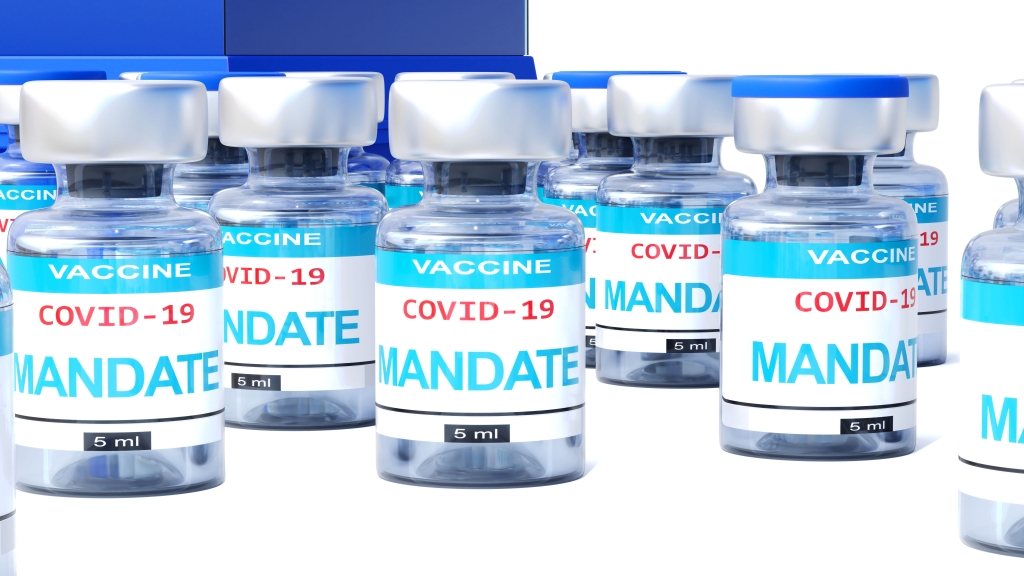September 14, 2021

On September 9, 2021, President Joe Biden announced a series of sweeping vaccine mandates as part of his plan to combat the surging COVID-19 Delta variant. In all, President Biden’s plan will impact a significant portion of the American workforce, including private employers with at least 100 employees, healthcare facilities that receive Medicare or Medicaid funding, federal employees, and federal contractors.
As explained in further detail below, the mandates introduce a multitude of uncertainties for employers across all industries. Adding to the uncertainty is the fact that the vaccine mandates are expected to be challenged in court. Therefore, employers should closely monitor any developments regarding any of the mandates referenced herein and regularly check for updates from Seigfreid Bingham, P.C.
Private Employers
The most expansive mandate from President Biden directs the Occupational Safety and Health Administration (OSHA) to develop an Emergency Temporary Standard (ETS) requiring all private employers with at least 100 employees to have a fully vaccinated workforce; or, in the alternative, to require unvaccinated employees to produce a negative test on a weekly basis. Moreover, the forthcoming ETS will require covered employers to provide employees with paid time off to receive the vaccine or recover from vaccine-related side effects.
Employers face a multitude of uncertainties until OSHA releases the full text of the ETS, including how the ETS interacts with existing vaccine incentive plans, which employees count toward the 100-employee threshold, and whether employers must foot the bill for weekly testing. To make matters worse, there is immense uncertainty regarding when the ETS will become effective. Although the previous COVID-19 ETS took six months to develop and implement, OSHA has indicated this ETS will be issued in the coming weeks.
Healthcare Industry
The Centers for Medicare & Medicaid Services (CMS) announced a mandate requiring vaccinations for workers in healthcare facilities that receive Medicare or Medicaid funding, including but not limited to hospitals, dialysis facilities, ambulatory surgical centers, and home health agencies. The mandate will apply to clinical staff, individuals providing services under arrangements, volunteers, and staff who are not involved in direct patient, resident, or client care. CMS is currently developing an Interim Final Rule that will be released in October.
Whether there will be exemptions for healthcare workers with religious beliefs or medical issues, how CMS plans to monitor compliance, and how much time healthcare facilities will have to comply with the mandate are all questions that remain to be answered. Given the unprecedented shortage in healthcare workers, healthcare facilities should closely monitor any future developments regarding the CMS mandate.
Federal Employees
President Biden’s Executive Order Requiring Coronavirus Disease 2019 Vaccination for Federal Employees (the “Federal Employee Order”) directs federal agencies to implement programs geared toward achieving a fully vaccinated federal workforce. Agencies must work expeditiously to ensure their personnel are fully vaccinated by November 22, 2021, except in limited circumstances where an employee is “legally entitled to a reasonable accommodation.”
Federal Contractors & Subcontractors
President Biden’s Executive Order on Ensuring Adequate COVID Safety Protocols for Federal Contractors (the “Federal Contractor Order”) mandates the inclusion of a clause within certain contracts between the federal government and contractors specifying that the “the contractor or subcontractor shall, for the duration of the contract, comply with all guidance for contractor or subcontractor workplace locations published by the Safer Federal Workforce Task Force.” This guidance, which the Task Force must publish by September 24, 2021, will define important terms, outline appropriate vaccine and safety protocols, and list any potential exemptions.
The scope of the Federal Contractor Order is noticeably broad in that it applies to a wide variety of transactions entered into with the federal government. Specifically, the Federal Contractor Order requires the clause to be included in any contract, contract-like instrument, solicitation, extension, renewal, or exercise of any option under a contract relating to:
- Procurements;
- Concessions;
- Constructions;
- Real property leasehold interests; or
- Businesses offering services for federal employees, their dependents, or the general public in connection with federal property or lands.
The clause must be included in the contracts referenced above starting on October 15, 2021. Until then, onsite contractors who are not fully vaccinated and are not part of an agency testing program must provide proof of a negative COVID-19 test from no later than the previous three days before entering a federal building.
The open-ended language of the Federal Contractor Order presents a litany of uncertainties for contractors as they prepare for compliance. Whether the mandate applies to contractors who work from home, if contractors can recoup the costs of compliance, and whether the mandate extends to the contractor’s entire workforce are only some of the issues contractors must navigate until the Safer Federal Workforce Task Force delivers more detailed guidance.This article is general in nature and does not constitute legal advice. Please note that the mandates referenced above present many novel legal questions, and we encourage you to seek legal advice for the application of these and related laws to your specific situation. Please note that legal requirements are changing on a daily basis. Readers with legal questions should consult the author, Cody Weyhofen (CWeyhofen@sb-kc.com), or the following shareholders in Seigfreid Bingham’s Employment Law Group, including John Vering (JVering@sb-kc.com), Mark Opara (MOpara@sb-kc.com), John Neyens (Johnn@sb-kc.com), Brenda Hamilton (BHamilton@sb-kc.com), Shannon Johnson (SJohnson@sb-kc.com), or your regular contact at Seigfreid Bingham at 816-421-4460.
